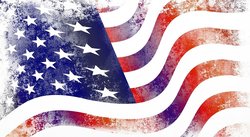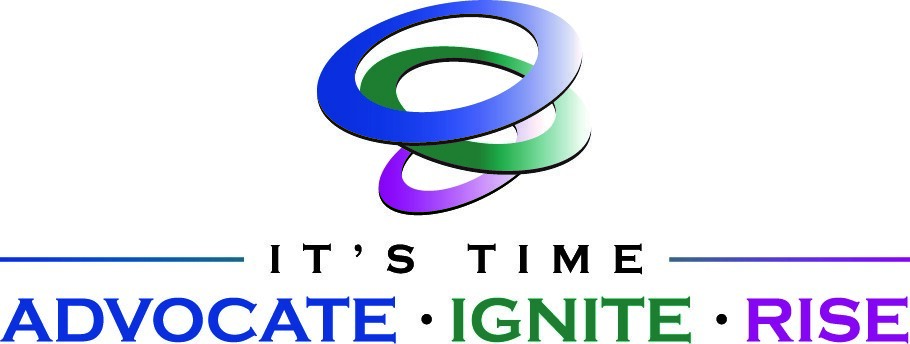 |
||
| Archive | Subscribe | Printer Friendly | Send to a Friend | www.beautyschools.org | ||
|
What's Hot
 AACS offices will be closed Friday, July 3 in observance of the July 4 holiday. We hope you enjoy a wonderful long weekend too. AACS offices will reopen Monday, July 6.  To best serve our beauty educators, and ensure the safety and health of all conference participants, this year’s 2020 CEA-AMP is going virtual. Check out the schedule for this first-of-its-kind event here. Register to join us July 11-13, 2020. Click here for more information. Members of Congress are scheduled to vote as soon as tomorrow, Friday, June 26, to attempt to override President Trump's veto of H.J. Res. 76. That resolution would have rescinded the new Borrowers Defense to Repayment ("BDR") rule scheduled to go into effect on July 1, 2020. An override would have disastrous consequences for our students, institutions and taxpayers. The new 2019 BDR includes critical due process protections for schools and students, establishes a clearer standard for borrower defenses to repayment, and provides greater transparency to both students and institutions. Furthermore, the rule corrects the wrongs of the Obama-era 2016 rule through common sense and carefully crafted reforms that hold colleges and universities accountable and treat students and taxpayers fairly. It is imperative that we fight against any vote seeking to abolish the 2019 BDR rule. WE NEED YOUR HELP We have made this process simple. Use the AACS Phone2Action system to contact your respective Representative. A form letter is already prepared for you that includes the message your Representative needs to hear. If you have any questions or need more information, please contact info@beautyschools.org
 Angelica Olmo is a licensed, working massage therapist after graduating from Cortiva Institute in Maitland, Florida. She landed a job two weeks after graduating and is now poised to start her own mobile massage business. In her video, Olmo shares with her local Florida lawmakers how their actions could have limited her opportunities. You can encourage your students to record a short, 30–60 second video that explains what their education means to them. Learn more about the #DontCutUsOut campaign here.

Reopening Guide Ready for when your state approves, AACS has created a Reopening Guide to help your schools and organization proceed with protocols to ensure the safety and health of your staff, instructors, students and community. In addition to resources, it also includes a state-by-state list of reopening policies. Click on this link to find out more.
Coronavirus Resource Center AACS is here for you with a comprehensive coronavirus resource page that will be updated as new information comes in. Click here for updates from the Centers for Disease Control, World Health Organization, Small Business Administration, U.S. Department of Education, accreditors, distance learning educators and more. The nomination period for the October 2020 election of the AACS Board of Directors is now open. There are 3 School Member seats and 1 Partner Member seat open for this election. Nominations will be accepted through Wednesday, July 15, 2020. Serving as a Director is one of the most important ways that you can support and sustain AACS. Our Directors have the responsibility to provide foresight, oversight, and insight for the Association. They serve as our primary ambassadors, advocates and the conscious voice of our Members. Our Board of Directors should reflect the highest aspirations of our businesses, our students and our industry.
If you are interested in serving, complete this Board Nomination Application Form and send to Jim Petrillo, vice chair of the AACS Governance Committee. This short PowerPoint addresses a few frequently asked questions. Member Benefits
This course will explore the field of gamification and the way that gaming and gaming elements have come to impact our everyday lives and can improve our courses. Focusing on easy-to-implement concepts, this course will help you to begin utilizing gamification elements to increase learner engagement and motivation and increase overall student success. In addition to safety and health protocols, additional supplies will likely be needed to protect your instructors, staff and students as the learning continues. For a limited time, for AACS members only, cloth masks and face shields are available (supplies are limited).
Masks are available by calling Nicole Gutierrez at: (855) 337-6811 ext. 12673 or Sara Haltom at (855) 337-6811 ext. 12872. Whether working from home or back in your offices, OfficeMax is here to provide AACS members special benefits. Businesses using the Office Depot discount program see significant savings. Take advantage of the program today and you could save thousands of dollars per year! To learn more, click here.
If you missed a webinar, recordings are available to members only. Webinars to date are:
If you would like the recording, email info@beautyschools.org. More will be available soon. Monitor your inbox for the latest information. Additional FAQs are available regarding:
GRC News
Federal Legislative Weekly Update U.S. Department of Education June 23, 2020 - House Education and Labor Chair Bobby Scott's (D-Va.) office detailed the "Reopen and Rebuild America’s Schools Act," which is included in the broader “Moving Forward Act,” H.R. 2 (116). Here are some key provisions:
June 22, 2020 - U.S. Secretary of Education Betsy DeVos unveiled a new online portal that will make it easier for schools to report foreign gifts and contracts valued at more than $250,000 as required by law. This is part of the Department's ongoing efforts to help higher education institutions come into compliance with Section 117 of the Higher Education Act after numerous reports, and the Department's own research, uncovered billions of dollars in unreported funds from foreign sources. The new online portal requires institutions to provide more information about their foreign financial ties. A federal judge has rejected a teachers union’s legal claims that accused Education Secretary Betsy DeVos of mishandling the Public Service Loan Forgiveness program. U.S. District Judge Dabney L. Friedrich dismissed the American Federation of Teachers and its president, Randi Weingarten, as plaintiffs in their lawsuit against DeVos, ruling that they lacked standing to bring the case. The lawsuit, which was filed last July, also features eight student loan borrowers who are teachers or work in public service jobs as individual plaintiffs. The judge ruled that two of the claims brought by some of those individual borrowers could proceed while siding with the Trump administration in its bid to reject another of their claims. June 21, 2020 - President Donald Trump is expected to extend through the end of the year foreign worker restrictions that were initially enacted in April because of the coronavirus pandemic, according to two people familiar with the discussions. Trump will expand on the executive order blocking most people from receiving a permanent residency visa, or green card, by including most guest workers who come to the United States for temporary or seasonal work. That will encompass skilled workers in specialty occupations, executives and seasonal workers who work in industries such as landscaping, housekeeping and construction, according to the two people, as well as a Department of Homeland Security official. Agricultural workers and students will not be included. June 19, 2020 - U.S. Secretary of Education Betsy DeVos announced a new higher education discretionary grant program designed to provide students the opportunity to develop new skills, provide innovators and inventors the resources to expand existing businesses or build new ones, and encourage institutions of higher education to foster business development and innovation as America begins to recover from COVID-19-related disruptions to education and our economy. The Reimagine Workforce Preparation Grant Program will be funded through the Education Stabilization Fund (ESF), authorized by the Coronavirus Aid, Relief, and Economic Security (CARES) Act, signed into law by President Donald J. Trump. The Reimagine Workforce Preparation Grant competition is open to all states, as well as Puerto Rico and the District of Columbia. The Department published a notice in the Federal Register inviting applications for the FY 2020 Education Stabilization Fund-Reimagine Workforce Preparation Grants Program. U.S. Secretary of Education Betsy DeVos announced the Department of Education has approved six additional career and technical education (CTE) plans. Colorado, Florida, Kentucky, New York, South Carolina and Utah are the latest states to have their CTE plans approved under the new, bipartisan Strengthening Career and Technical Education for the 21st Century Act (Perkins V), which was signed into law by President Donald J. Trump on July 31, 2018. The U.S. Department of Education is requesting an emergency clearance of the Eligibility of Students at Institutions of Higher Education for Funds under the CARES Act information collection system to allow for immediate outreach to institutions of higher education (IHEs) to meet the requirements of the Coronavirus Aid, Relief, and Economic Security Act or the CARES Act, Public Law 116-136 (March 27, 2020). This will help to ensure that the distribution of the CARES Act funds is managed by IHEs in accordance with the clarification as discussed in the Interim Final Rule. The Department is requesting emergency clearance and OMB approval of the emergency and 60 day public comment period with this filing. The Department will publish a 30 Federal Register notice as required by 5 CFR 1320.8(d), soliciting comments on the information collection after the end of the 60 day notice. The Department is proposing an extension of the Federal Family Educational Loan Program (“FFEL”) Administrative Requirements for States, Not-For-Profit Lenders, and Eligible Lenders Trustees information collection system. The regulations in 34 CFR 682.302(f) assure the Secretary that the integrity of the program is protected from fraud and misuse of funds. These regulations require a State, not-profit entity, or eligible lender trustee to provide to the Secretary a certification on the State or non-profit entity's letterhead, signed by the State or non-profit's Chief Executive Officer, which states the basis upon which the entity meets the regulations. The submission must include the name and lender identification number(s) for which the eligible designation is being certified. Once an entity is approved it must provide an annual recertification notice identifying the name and lender identification number(s) for which designation is being requested. June 18, 2020 - The Supreme Court rejected the Trump administration's attempt to wind down the Obama-era program Deferred Action for Childhood Arrivals, handing a major victory to about 650,000 immigrants, a large share of whom are students. Trump’s decision to end the program would have put jobs or higher education out of reach for hundreds of thousands of undocumented people brought to the U.S. illegally as children. Chief Justice John Roberts joined the court’s Democratic appointees in a 5-4 decision that found the Department of Homeland Security failed to comply with the procedural requirement that includes considering hardships DACA recipients could face if the program were to be rescinded. The court sent the program back to DHS to "consider the problem anew." Recently Introduced Federal Legislation H.R.7294 - To suspend Federal Perkins Loans repayments during the COVID-19 pandemic, and for other purposes. a. Status: Referred to Committee on Education and Labor, 6/22/20 b. Sponsor: Rep. Katie Porter (D-CA) 4 Cosponsors
State Update State Legislatures Address COVID-19 Liability The first week of Summer finds 15 state legislatures actively meeting. This week’s update focuses on state legislative activity responding to the COVID-19 pandemic, as well as a Michigan barbering apprenticeship bill. As always, AACS will keep you apprised of the latest state legislative and regulatory developments of interest to member schools. Iowa Governor Kim Reynolds (R) signed a COVID-19 civil liability immunity bill into law last week. SF 2338 states that “a person in this state shall not be held liable for civil damages for any injuries sustained from exposure or potential exposure to COVID-19 if the act or omission alleged to violate a duty of care was in substantial compliance or was consistent with any federal or state statute, regulation, order, or public health guidance related to COVID-19 that was applicable to the person or activity at issue at the time of the alleged exposure or potential exposure.” The Act applies retroactively to January 1, 2020. Earlier this month, Kansas Governor Laura Kelly (D) signed HB 2016 into law. According to an official summary, “the bill states that, notwithstanding any other provision of law, a person (or agent of such person) conducting business in Kansas shall be immune from liability in a civil action for a COVID-19 claim if such person was acting pursuant to and in substantial compliance with public health directives applicable to the activity giving rise to the cause of action when the cause of action accrued. This section expires on January 26, 2021, and the bill (Section 15) states this provision applies retroactively to any cause of action accruing on or after March 12, 2020.” In the closing hours of Tennessee’s 2020 legislative session, the House failed to pass a civil liability immunity bill conference report despite it receiving 46 ayes and 36 nays, which was four votes short of the 50 votes required for a constitutional majority. The Senate passed the SB 2381 conference report last Thursday by a vote of 24 to 5. According to an official summary, the bill would have exempted a covered entity from being liable for damages, injury, or death that results from, or in connection with, a health emergency claim related to coronavirus unless the claimant proves by clear and convincing evidence that: (1) The covered entity caused the damages, injury, or death by acting with gross negligence or willful misconduct; and (2) If public health guidance applicable to the covered entity had been issued, the covered entity did not substantially comply with any public health guidance applicable to the covered entity. Similar bills were introduced last week in New Mexico (HB 16) and Pennsylvania (SB 1194). In Ohio, the House of Representatives unanimously passed HB 673 on June 10th. There are two provision of interest in this 20-page COVID-19 response bill. The first would require the State Cosmetology and Barber Board to issue temporary pre-examination work permits to practice barbering. The second prohibits the Board from requiring a licensee to obtain an additional permit to provide services at a limited event, such as a wedding, so long as the services are provided incidentally to the licensee’s regular practice in a salon or barber shop. Current Ohio law provides for temporary pre-examination work permits for all other beauty discipline graduates, except barbers. Finally, Michigan’s Senate Regulatory Reform Committee favorably reported a substitute to SB 691 last week. As originally introduced, the bill would establish 2,000-hour apprenticeships for barbering. The Committee Substitute does not specify required apprenticeship hours but instead enumerates several requirements that must be met by the barbershop owner. It also states that “the owner of a barbershop that conducts an apprenticeship program shall not charge a fee for the teaching of barber services to apprentices on the premises. The owner of a barbershop where 1 apprentice has been successfully trained may allow the training of additional apprentices at the establishment, except that not more than 2 apprentices may be trained at the same time.” SB 691 bill has been referred to the Senate Committee of the Whole. The text of the bills listed in this report can be found in AACS’ Bill Tracking Portal. As state legislative activity wanes during the Summer, this report will be published the remainder of the year on the first and third weeks of the month. Interim updates will be posted, as necessary, on AACS listserves and/or emailed to AACS members in the affected state. Weekly reports will resume in January 2021. Please do not hesitate to contact Brian Newman at bnewman@abingdonstrategies.com or by phone at 202-491-5254 with comments or questions.
COVID-19 Resources This page contains a running list of state reopening guidance for salons and other personal care businesses. AACS Coronavirus Resource Center The bottom of this page contains a running list of state distance learning guidance. It was compiled with assistance from the AACS State Relations Committee and/or a review of state board websites. Accordingly, developments may be occurring faster than our ability to capture/report on them. Please contact your state regulator(s) for the most current information. State and Local Government Responses to Covid-19 Stateside Associates, a state and local government relations firm, has created a chart with state legislative actions, executive agency actions, gubernatorial actions, and local government actions related to the outbreak of the coronavirus. Executive actions closing retail and “non-essential” businesses will be of interest. PBA/Stateside Associates Report: Reopening of State and Local Economies (Updated June 19, 2020) National Governors Association Coronavirus Updates COVID-19 State Legislation – National Conference of State Legislatures |
||





 With heightened concerns about our health, you and your staff, faculty and students may need some additional assistance with your prescriptions. Ask the AACS national office how you can download your prescription card, and potentially save up to 80% on your medications. There are no health restrictions, and may be used on drugs not covered in health plans. It may even be used on many pet prescriptions. The card is pre-activated and ready for use! For your copy, contact
With heightened concerns about our health, you and your staff, faculty and students may need some additional assistance with your prescriptions. Ask the AACS national office how you can download your prescription card, and potentially save up to 80% on your medications. There are no health restrictions, and may be used on drugs not covered in health plans. It may even be used on many pet prescriptions. The card is pre-activated and ready for use! For your copy, contact 


